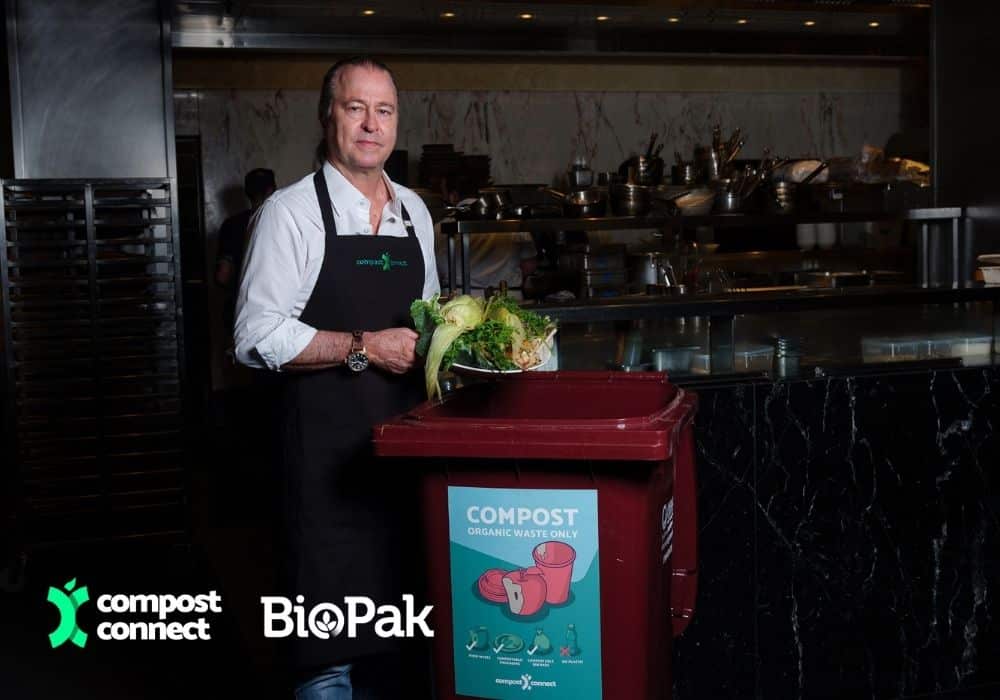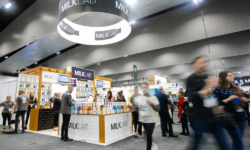Why BioPak Started Compost Connect
They're excited to announce that Compost Connect has now launched in the UK.
Compost Connect is a not-for-profit composting initiative here to help connect foodservice businesses to composting services and divert waste from landfill. Composting is easy, saves on general waste costs, and helps fight climate change. We can make a global impact, all by making changes at the local level.
BioPak’s first compost club member is healthy mexican food chain, Zambrero, who is leading the way in sustainable foodservice, using BioPak compostable packaging to serve their food. They have implemented front and back of house compost bins at their Kentish Town location in North London, to send any organic waste including food scraps and compostable packaging to an industrial composting facility via compost partner Zap Waste. This will soon extend to a second location at the beginning of December in Loughton near Epping Forest in Essex and with the goal of eventually composting at all Zambrero stores in the UK.
What you might not know is that Compost Connect is an initiative started by the leaders in sustainable food packaging, BioPak. While compostable packaging is designed for a circular economy, correct disposal is essential in order to realise all the associated environmental benefits.
As a responsible business, BioPak could not continue to simply accept that their products were ending up in landfill when there was a more sustainable option available.
“We accept responsibility for all stages in the lifecycle of our products,” says Gary Smith, CEO of BioPak. “We’re not about being ‘less bad’. Instead, we’re creating products that reflect a ‘cradle to cradle’ life cycle rather than a ‘cradle to grave’ life cycle.”
Here’s why compostable packaging (and composting) is part of the solution.
1. We need viable alternatives to recycling
The paper and plastic recycling industry is under increasing pressure following the introduction of the China National Sword policy which has seen China cease to accept recyclable materials exported from western nations. Many Asian countries have followed suit which has resulted in recyclable materials ending up in landfill due to the fact that the local recycling industry is incapable of accepting and processing these materials.
Just because something is recyclable doesn’t mean it can or should be recycled. The transport, costs and energy required to sort, clean and recycle materials often don’t make commercial sense.
Composting is, on the other hand, hyper local, utilises natural processes and does not require significant energy to operate – you put all your compostable packaging and food scraps into one bin, and it all gets converted into compost.
2. Food residue contaminates the recycling stream
Any food that remains in conventional plastic or fibre based food packaging products contaminates the recycling stream making it an impractical solution for foodservice packaging.
With composting, this isn’t an issue. Both food and compostable packaging products can be put in the same bin, no separation or sorting required.
3. Composting helps fight climate change
When organic matter, such as food scraps, is disposed of into landfill, it releases methane – a harmful greenhouse gas. That means waste sent to landfill is a huge contributor to climate change. Composting diverts organic waste from landfill, and subsequently helps fight the climate emergency, while also producing a useful new resource – compost that improves soil quality and water retention.
4. Composting plant-based packaging closes the loop on waste
Compostable packaging like BioPak’s, is made from plants (not oil) that require quality soil to grow. When their packaging is composted along with food scraps it breaks down through the composting process and returns nutrients back to the soil used to grow more plants. This makes composting plant-based packaging a closed-loop solution.
5. Composting is a low-cost solution
Composting is a low-tech, low-cost solution for waste management in the foodservice industry. It offers a means to divert large volumes of food scraps and organic waste from landfill. In Australia and New Zealand the infrastructure already exists and is rapidly becoming more widely available in different councils and constituencies. (source – AU)
More information
If you want more information about Compost Connect, please contact BioPak and they’ll be happy to answer any questions you have.
Most Read
-
Stay up to date with the latest news, industry insights and Fine Food Australia updates.
- Subscribe









